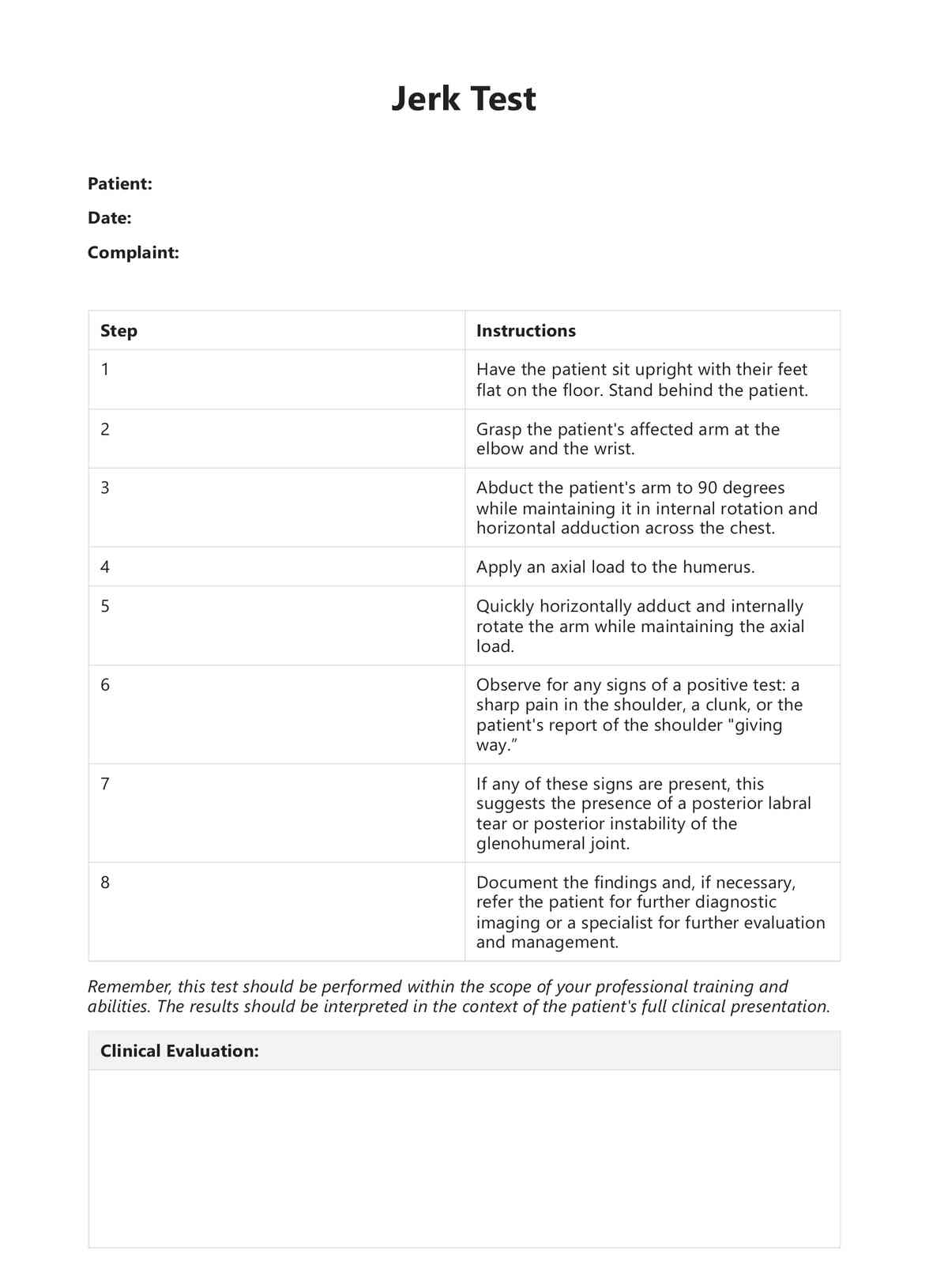What is a Jerk Test?
The Jerk Test is a specialized physical examination procedure often utilized by healthcare professionals, such as orthopedic surgeons, physiotherapists, and sports medicine specialists, to assess potential instability in the shoulder joint, specifically focusing on the glenohumeral joint. This joint, one of the most mobile in the human body, can become unstable for various reasons, including trauma, overuse, or degenerative changes.
One of the primary conditions the Jerk Test is designed to uncover is a posterior labral tear. The labrum is a ring of cartilage that surrounds the shoulder socket and helps to stabilize the joint. A tear in the posterior part of the labrum can lead to posteroinferior instability, which can cause significant discomfort and limit the range of motion.
The Jerk Test's utility lies in providing immediate feedback on the patient's condition. It does this by eliciting symptoms the patient may have been experiencing, such as a sharp pain, a sense of instability, or a 'clunk' sensation. These symptoms, when produced during the test, could indicate a positive result, suggesting the presence of a condition like a posterior labral tear or other cause of posteroinferior instability.
Its simplicity and efficacy make the a popular choice among practitioners. It can be performed within minutes during a routine clinical examination, requires no complex equipment, and provides valuable insights into the patient's shoulder health.
This test, coupled with a thorough patient history and other physical examination procedures, can help healthcare professionals accurately diagnose shoulder instability and devise appropriate treatment plans. This critical role in patient care makes the Jerk Test indispensable in musculoskeletal and sports medicine.












